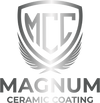In the mind of our chemist: Boron infused coatings Demystified
A cool update from our lead chemist that's working on the formulation and next release of the Borophone V4.
The Future of Car Protection: Why Boron Infused Ceramic Coating Outshines the Competition.
In the world of automotive detailing, innovation never stops. Just when graphene seemed like the pinnacle of ceramic coating technology, a new material is redefining the limits of gloss, slickness, and protection: borophene.
But what is a boron infused coating? And why are professionals saying it’s better than graphene or traditional ceramic coatings?
Let’s break it down.
What Is a boron infused coating?
Borophene is a single-atom-thick sheet of boron atoms, similar to how graphene is a single layer of carbon atoms. But borophene brings unique advantages that make it ideal for high-performance surface coatings:
- Stronger bonding with ceramic resins
- Higher mechanical strength
- Superior thermal and chemical properties
- Atomic-level smoothness
These features make it a game-changer for automotive surface protection.
Why Borophene Ceramic Coating Is a Breakthrough
1. True Structural Slickness: Not Just Oil-Based
Many coatings feel slick when freshly applied, but that’s often due to temporary additives like silicone oils. These wear off after a few washes, leaving the surface dull and rough.
Borophene is different. It forms a tightly bonded, ultra-flat surface at the molecular level, resulting in true slickness that lasts.
No oils. No fillers. Just pure surface engineering.
2. Extreme Gloss & Light Reflection
Because of its atomic flatness and tight resin interaction, boron creates an incredibly even surface that reflects light more uniformly. This leads to a deeper, mirror-like gloss that holds up over time, even under harsh sunlight.
3. Longer-Lasting Protection & Durability
Thanks to stronger chemical bonding with ceramic resin, borophene-based coatings are more resistant to:
- UV degradation
- Thermal breakdown
- Chemical attack (acids, salts, detergents)
- Mechanical wear from washing and road grime
That means your car stays protected and beautiful longer, with less maintenance.
4. Superhydrophobic, Self-Cleaning Performance
Water, dust, and mud don’t stand a chance. Borophene coatings are engineered to be superhydrophobic, causing water to bead and roll off, taking contaminants with it. Your car stays cleaner, longer.
Borophene vs. Graphene and other SiO2 coatings: A Clear Upgrade
|
Property |
Borophene Ceramic Coating |
Graphene and SiO2 coatings |
|
Surface Slickness |
✅ True, structural |
⚠️ Often oil-enhanced |
|
Gloss Retention |
✅ Longer-lasting, deeper gloss |
⚠️ Gloss fades faster |
|
Chemical Bonding |
✅ Stronger with resin |
⚠️ Weaker interface |
|
Surface Flatness |
✅ Ultra-even, no fillers needed |
⚠️ May aggregate or clump |
|
Thermal Stability |
✅ Higher conductivity & resistance |
✅ Good but limited |
|
Hydrophobicity |
✅ Superhydrophobic |
✅ Hydrophobic |
What About Stability?
Some skeptics ask:
“Isn’t boron unstable?”
It's a valid concern. In its raw form, boron can be unstable in air. But in a coating formula, it’s a different story.
In our advanced formulation, boron is stabilized through encapsulation and strong chemical bonding within the ceramic matrix. It doesn’t degrade or oxidize under real-world conditions. You get all the performance without the risk.
Final Verdict: Boron infused coatings are the future
Borophene ceramic coatings offer:
- Longer-lasting gloss and slickness
- Stronger, more durable protection
- True surface engineering—not oil tricks
Ultra-smooth, hydrophobic, and low-maintenance finish
If you're ready to give your car a coating that’s scientifically superior and visibly stunning, it’s time to go Luminous X
We have some interesting developments with our next release and i'm excited to see what we can do relating to the thickness of the coating and filling enhancement.
Luminous X V4 Roadmap
- SEMM Imaging >10 microns per singler layer application
- Increase filling capability with scratches
- Enhance water contact angle and sheeting capabilities >120 degrees.

